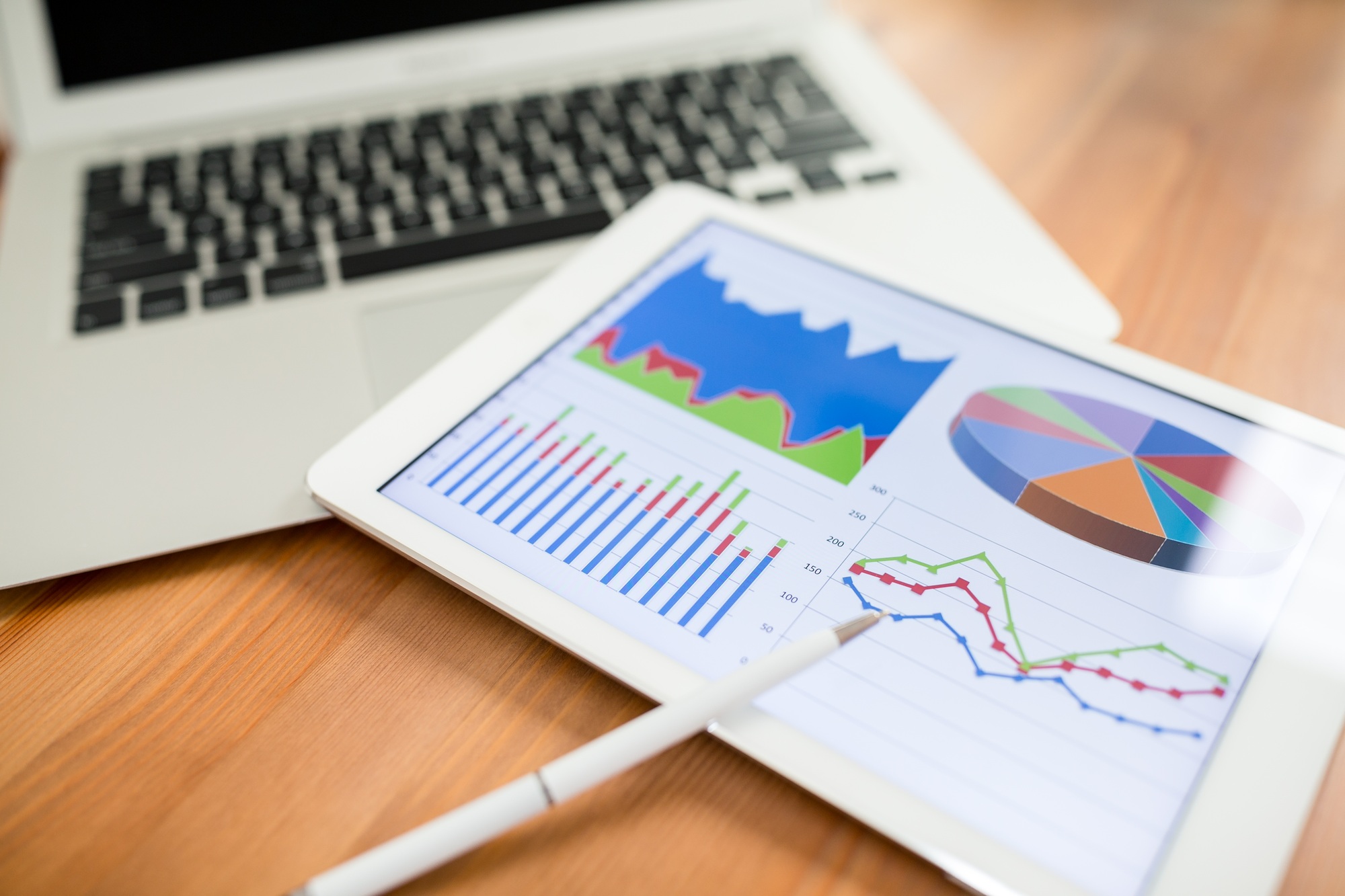Key Takeaways

- Enhanced Financial Management: Standalone accounting software simplifies financial processes, helping small businesses and freelancers focus on growth by streamlining tasks like invoicing and expense tracking.
- User-Friendly Features: Most standalone options boast intuitive interfaces, allowing quick adoption without extensive training. This usability is essential for users with minimal accounting knowledge.
- Cost-Effective Solutions: The software typically involves lower upfront costs than cloud-based options and reduces labor expenses through automation, providing a budget-friendly choice for small businesses.
- Robust Reporting Tools: Advanced reporting and analytics features help users track financial health and make informed decisions, including customizable reports and insights into performance trends.
- Integration Flexibility: Evaluate the integration capabilities of standalone accounting software to ensure seamless connectivity with existing systems, enhancing productivity and simplifying workflows.
- Scalability Considerations: Assess the scalability of the chosen software to accommodate future growth, ensuring that it meets both current and evolving business needs efficiently.
In today’s fast-paced business world, managing finances efficiently is crucial. Standalone accounting software offers a tailored solution that helps you streamline your financial processes without the clutter of unnecessary features. Whether you’re a small business owner or a freelancer, this software can simplify everything from invoicing to expense tracking, allowing you to focus on what really matters—growing your business.
With a variety of options available, choosing the right standalone accounting software can feel overwhelming. However, understanding your specific needs can guide you toward the perfect fit. By leveraging these dedicated tools, you’ll gain better control over your finances, ensure compliance, and ultimately make more informed decisions. Let’s dive into the benefits and features that make standalone accounting software an essential asset for your financial management.
Overview of Standalone Accounting Software

Standalone accounting software provides essential tools for managing financial tasks independently of other software systems. This type of software is particularly valuable for small businesses seeking to streamline their financial processes. You gain access to features that cater specifically to invoicing, expense tracking, and reporting.
Standalone accounting software often offers user-friendly interfaces, enabling quick adoption without extensive training. Many solutions allow customization, fitting your business needs whether you’re monitoring cash flow or preparing for tax season.
Choosing standalone accounting software allows you to leverage technology tailored to your operational requirements. Features such as automatic bank reconciliation and financial forecasting tools enhance your decision-making capabilities. Additionally, robust reporting functions provide insights into your business’s financial health.
Integration with third-party applications simplifies your workflow, enhancing productivity while keeping your financial management centralized. Since small businesses often have budget constraints, many standalone options come with cost-effective pricing plans, ensuring you get value without overspending.
Key Features of Standalone Accounting Software

Standalone accounting software provides essential tools for small businesses to manage their financial tasks efficiently. Understanding key features helps you select software that aligns with your business needs.
User Interface and Usability
User-friendly interfaces enhance your experience, making it easier to manage financial activities. Intuitive navigation, clear menus, and minimal complexity cater to users without extensive accounting knowledge. Mobile access allows you to manage your accounting from anywhere, providing flexibility and real-time collaboration. Customizable dashboards and reporting tools enable you to tailor the software to your specific requirements, improving data visualization and usability for effective financial management.
Reporting and Analytics
Reporting capabilities are crucial in standalone accounting software. You should find both standard financial reports, including balance sheets and income statements, as well as customizable reporting options. These features help track your business’s financial health and make informed decisions. Robust analytics tools provide insights into performance trends, enabling you to leverage data to enhance strategic planning. By utilizing advanced reporting, your small business can analyze costs, forecast trends, and improve overall profitability.
Benefits of Using Standalone Accounting Software

Standalone accounting software offers distinct advantages for small businesses seeking to streamline their financial systems. This software enhances your operations by improving accuracy, efficiency, and cost-effectiveness.
Improved Accuracy and Efficiency
Standalone accounting software automates many financial tasks. Automating transaction entries, invoice creation, and payment tracking reduces the chance of human error. Increased accuracy helps maintain your financial integrity, whether you run a small business or manage freelance projects.
Efficiency gets a significant boost as repetitive tasks get automated. Your staff can allocate their time to critical areas like analysis and strategic problem-solving. This shift from manual accounting methods to automated solutions enhances productivity, enabling you to focus on growth.
Cost-Effectiveness
Standalone accounting software provides a cost-effective solution for small businesses with tight budgets. This software typically has lower upfront costs than cloud-based alternatives. You pay for the software once, avoiding ongoing subscription fees.
Cost savings also come from reduced labor expenses. Automation minimizes the need for extensive accounting staff, allowing you to maximize your financial resources. Implementing standalone software ensures you access essential tech without overspending while supporting your business’s financial health.
Popular Standalone Accounting Software Options

Standalone accounting software offers various options tailored for small businesses. Understanding these solutions helps you select the best fit for your financial management needs.
QuickBooks
QuickBooks is a leading option for small businesses, available in both cloud-based (QuickBooks Online) and desktop versions (QuickBooks Desktop). QuickBooks Online delivers real-time access to financial data across multiple devices, allowing you to manage your accounting anytime, anywhere. Key features include invoice tracking, expense tracking, and robust reporting tools that enhance your understanding of financial performance. Additionally, it provides mobile app functionality, multi-currency support, and advanced security measures like encryption and multi-factor authentication. Such capabilities ensure you maintain control over your finances while leveraging the latest tech.
FreshBooks
FreshBooks is another popular choice, specifically designed for small service-based businesses. It emphasizes simplicity in invoicing and expense management. FreshBooks allows you to create professional invoices that can be delivered directly to clients, helping to streamline your payment process. Key features include automated expense tracking, time tracking for billable hours, and project management tools that enhance productivity. With its user-friendly interface, FreshBooks makes accounting approachable for individuals with minimal accounting knowledge, ensuring you can focus more on growing your business.
Considerations When Choosing Standalone Accounting Software

Selecting standalone accounting software requires careful consideration of various factors that can impact your small business. Key aspects include your business size and needs, as well as the integration capabilities of the software.
Business Size and Needs
Assess your business size and specific needs before choosing standalone accounting software. Scalability plays a crucial role; standalone options can be less scalable compared to cloud solutions. As your small business grows, purchasing additional licenses and hardware may become necessary. Each new license needs manual installation and configuration, which can be time-consuming and costly. Ensure the software you choose accommodates your current size while offering paths for future expansion. Consider whether the software provides the customization and features your business requires. For instance, if you need to add functionalities like payroll or tax management, be aware that you might need to acquire separate software or upgrades.
Integration Capabilities
Evaluate the integration capabilities of standalone accounting software to ensure it works well with other tech your business uses, such as payment processing systems and customer relationship management (CRM) tools. Seamless integration simplifies workflows and amplifies productivity. If your existing operations rely on particular platforms, confirm that the accounting software can connect with those solutions efficiently. Strong integration reduces manual data entry and streamlines your financial management processes, giving you more time to focus on growing your small business.
Conclusion

Embracing standalone accounting software can significantly enhance your financial management processes. With user-friendly features and robust reporting capabilities, these tools empower you to make informed decisions and streamline daily operations.
As you evaluate your options, consider your specific needs and the scalability of the software to ensure it grows with your business. By investing in the right standalone solution, you can improve accuracy and efficiency while keeping costs manageable.
Ultimately, the right software not only simplifies your accounting tasks but also supports your overall business success. Make the leap to better financial management today.
Frequently Asked Questions

What is standalone accounting software?
Standalone accounting software is a specialized tool designed to manage financial activities independently, simplifying tasks like invoicing, expense tracking, and reporting for small businesses and freelancers.
Why should small businesses use standalone accounting software?
Small businesses benefit from standalone accounting software by improving efficiency, accuracy, and cost-effectiveness. This software automates tasks, reduces human error, and allows business owners to focus on strategic decision-making.
What are key features of standalone accounting software?
Key features include user-friendly interfaces, customization options, automatic bank reconciliation, financial forecasting tools, and robust reporting capabilities that provide insights into a business’s financial status.
How does standalone accounting software integrate with other systems?
Standalone accounting software can seamlessly integrate with third-party applications, such as payment processors and customer relationship management (CRM) tools, enhancing overall productivity by streamlining workflows.
What are popular standalone accounting software options?
Popular options include QuickBooks, offering both desktop and cloud-based versions with real-time financial data, and FreshBooks, which is user-friendly and ideal for service-based businesses focusing on invoicing and expense management.
How do I choose the right standalone accounting software for my business?
Consider your business size, specific needs, and scalability when selecting standalone software. Ensure it integrates with your existing systems and has features that align with your financial management goals.
Image Via Envato: cait00sith, prathanchorruangsak, leungchopan, CharliePix, chartchaik1, traimakivan, svitlanah, wasant1



